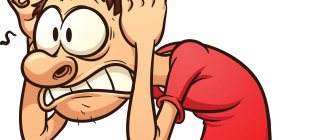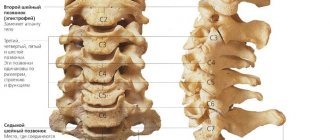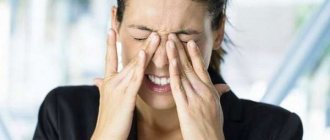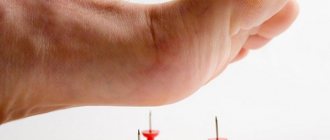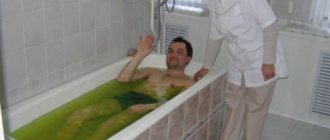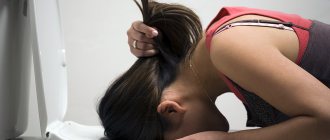- May 29, 2019
- Psychiatry
- Svetlana Sazhina
An attack of anxiety disorder, in other words, a panic attack, always occurs unexpectedly and in any place. Residents of megacities are especially susceptible to the disease. All categories are susceptible to the disorder: old people, young people, men and women. How to cope with a panic attack so that it goes away forever is the main question of those suffering from the disease.
What is a panic attack
A panic attack is an attack of panic that is uncontrollable. As a rule, it occurs suddenly and is a huge internal emotional discomfort of the individual. Conscious perception of the situation at the time of anxiety disorder is practically absent. Therefore, coping with a panic attack on your own is usually very difficult.
Anxiety disorder is a disease. And it mainly affects people who have a high level of anxiety and a great desire to establish control over everything that happens. Any deviation from the intended path knocks them out of their mental balance, resulting in fear and panic.
Overly demanding people also often suffer from this disease. The desire for perfectionism creates incredible physical and nervous overload. At some point, the body malfunctions - and a panic attack is right there.
Traditional methods
If you are familiar with panic attacks, how to deal with these manifestations yourself is one of the questions that most interests you. A person can resort to traditional medicine. However, you need to understand that it is better to consult with a specialist anyway, so as not to unknowingly aggravate your condition. In addition, the use of traditional medicine is unacceptable if the condition is advanced, accompanied by serious manifestations of a panic attack (after an attack, a person is taken away in an ambulance). In this case, you cannot do without proper drug therapy.
Herbal infusions. In order to counter panic attacks, pharmaceutical preparations are used, which include sedative herbs. If you seek help from a psychotherapist and are taking herbal medications, be sure to inform your doctor about this.
- Peppermint and three-leaf watch are mixed in a one-to-one ratio in an enamel saucepan. To these ingredients add half of the total mass of valerian roots and hops. Mix everything thoroughly and pour in half a liter of boiling water. It is important to use only purified water. The ingredients are infused for half an hour. The finished infusion should be consumed one hundred milliliters twice a day. This remedy can also be used as a preventative measure. To do this, the infusion is consumed once every six months in a course of one week.
- To prepare the herbal mixture, you will need half a glass of cumin seeds, a third of a glass of chamomile flowers and half a glass of valerian rhizome. Mix all ingredients thoroughly and pour into a jar. To prepare an infusion from this collection, you need to use two tbsp. spoons of herbs, pour boiling water over them and leave to steep for thirty minutes. It is recommended to take it daily, morning and evening, 100 milliliters at a time.
- Linden infusion. To prepare this medicine, you need to use a tablespoon of linden (plant flowers), pour 200 ml of boiling water over it. Leave to infuse for 15 minutes. After which it is taken like tea. If you want to sweeten, add honey, not sugar. You need to know that if you have stomach problems, you should consume linden with caution.
- To prepare this infusion, you will need two teaspoons of dried cucumber, hawthorn and motherwort. If desired, you can add another teaspoon of chamomile flowers. These herbs are poured with a glass of boiling water and left to infuse for eight hours. After this time, the product is filtered through several times more complex gauze. You need to take half a glass three times a day every day.
- Honey mixture. To prepare this product you will need 200 g of dill seeds, two tbsp. spoons of valerian root, which must be poured with boiling water. The product is placed in a thermos and left to infuse throughout the day. After this time, two glasses of honey are added to the solution. It is important to use only natural and fresh product, not sugared. All ingredients are thoroughly mixed so that the solution becomes homogeneous. This medicine is used three times a day, a tablespoon, it is recommended on an empty stomach half an hour before meals. To prevent this product from deteriorating, it must be stored in a cool, dry place. If any abnormalities are detected, for example, in taste or smell, you must stop taking this medicine and prepare a new one.
- Soothing, relaxing baths. Taking water procedures will allow you to cheer up, relax, and enjoy. You can use linden, rosemary and wormwood. Take a kilogram of herbs and pour three liters of boiling water. Set to cook for eight minutes. After the time has elapsed, the finished product is left to infuse for five minutes. The resulting medicine must be filtered through gauze or a sieve. Pour the clean solution into the bath and add the required amount of water. It is recommended to take water procedures before going to bed. You need to lie in such water for thirty minutes. It would be a good idea to light scented candles or turn on relaxing music. You can also take a pine bath once a month. To do this, you need to pour boiling water over a couple of cones, leave to infuse for a couple of minutes, and then dilute with water in the bathroom.
Symptoms of a panic attack
Before you can cope with a panic attack, you need to understand the symptoms of the disease. The main signs of an anxiety disorder are:
- Rapid pulse.
- Profuse sweating.
- A feeling of lack of air – shortness of breath and breathing difficulties.
- Trembling and tremor of the limbs and whole body.
- Dizziness.
- Stiffness in arms and legs.
- High blood pressure.
- Discomfort and pain in the heart area.
- Impaired consciousness (confusion, sometimes loss).
- The predominance of emotions of an alarming nature: fear of dying, going crazy, the end of the world, etc.
To all these symptoms are added somatic reactions - diarrhea, enuresis or frequent urge to urinate, pain and cramping in the abdomen and stomach, nausea. In addition, depersonalization and derealization occur. In other words, a person ceases to perceive the surrounding reality as a safe environment. There is a clouding of consciousness.
Symptoms
Conventionally, the symptoms of a panic attack can be divided into physical and mental. The attacks worsen day and night, then disappear unexpectedly as they appeared.
The relapse lasts from 10 minutes to 2 hours, its duration is difficult to predict.
List of physical signs of the disease:
- A sharp rise in blood pressure. Adrenaline enhances the functioning of the cardiovascular system. Blood pressure often increases during the day - during physical activity.
- Palpitations. An increased heart rate can cause a person to lose consciousness and be on the verge of a heart attack. The pulse increases to 180 beats/min, then returns to normal.
- Shortness of breath and asthma attack. Impaired breathing causes severe shortness of breath. Due to panic, a person has difficulty breathing and feels as if he is suffocating. Asphyxiation attacks do not lead to a heart attack.
- Feeling hot/chilly. This symptom occurs due to impaired blood microcirculation, changes in vascular tone of the subcutaneous tissue and epidermis.
- Increased sweating. The patient suddenly breaks into a sweat. This is a way of cooling the body to save energy spent on warming the body.
- Frequent urination. The symptom varies in intensity: from frequent trips to the toilet to urinary incontinence.
- Numbness of the limbs. Due to impaired blood flow, unpleasant tension and tremors appear in the muscles. The patient thinks he is falling, but this does not happen.
Article on the topic: Cerebellum - small brain
Mental signs of panic syndrome:
- lump in throat;
- fear of death;
- night awakenings;
- feeling of anxiety;
- fear of the dark;
- motor restlessness;
- feeling of hidden threat;
- apathy, weakness.
External signs
The patient's behavior with panic syndrome becomes inadequate. The person does not recognize the place and those around him, does not understand who he is and what is happening around him. There is a strong fear in his gaze, the occurrence of which he cannot explain.
For no apparent reason, the voice changes and movements become chaotic.
External signs of an attack:
- Running glance. A person cannot focus on one object and does not clearly see the objects around him. Visual acuity decreases.
- Closedness. The patient experiences timidity, stiffness, motor restlessness, tries to retire, prefers solitude.
- Changes in the skin. During an attack, the skin either turns pale, acquiring a bluish tint, or becomes very red.
- Gait disturbance. Disorientation occurs in space, which is accompanied by a shaky, uncertain gait, and fear of falling.
Causes of the disease
When answering the question of how to cope with panic attacks, you need to know what exactly underlies the disease. The following are the causes of anxiety disorder:
- This is, first of all, long-term anxiety caused by constant stress, which is based on emotional and physical overload.
- Not the least reason for the occurrence of a panic attack is the predisposition of the human psyche to such disorders. This tendency can be either genetically determined or acquired as a result of any previous diseases.
- An anxiety disorder can also arise due to an unstable character, unpleasant childhood memories, or psychological trauma.
- According to experts, anything can trigger a panic attack - an open space, a cramped room, or a large number of people.
In short, an attack of anxiety disorder occurs against a background of nervous tension or emotional distress.
First aid
There are many methods for getting rid of panic attacks at home. First, you should provide emotional support to a person with such a problem. Secondly, there are various physical therapies. Thirdly, distraction methods have been developed that will also help you quickly calm down and take your mind off anxiety. If all these methods do not help, drug therapy will be needed.
- Emotional support. As for emotional help, you need to try to convince the patient that this attack will now pass quickly and is completely harmless. You also need to tell the person that he will always receive help and support, so there is no need to worry now. It is recommended to tell the patient that they understand him perfectly and know what he really feels now. You should convince the person that it will now become much easier for him. It must also be said that he is strong and copes well with this problem.
- Physiotherapeutic methods. These include the following procedures: light massage of the whole body and head; cold and hot shower; breathing control; relaxation after intense stress. Be sure to monitor your breathing. It should be deep and continuous, without sudden changes. It is recommended to switch to abdominal breathing. You can use a regular bag or fold your palms. As for massage, you need to massage your neck, back, head, ears, little fingers, thumbs, shoulders. Even simple strokes will be enough. During a contrast shower, you need to sharply change the water temperature every 30 seconds.
- If panic attacks occur, treatment at home involves distraction techniques. In this case, it is recommended to keep a diary and write your thoughts in it, and then re-read it. You can play different games. It’s also useful to just sing songs. If the panic attack is mild, you can pinch yourself or focus on something else.
Types of panic attacks
All anxiety disorders are usually divided into three main types:
- Spontaneous panic attack. How to cope with such an attack yourself is not an easy question. The main difficulty is that such an attack occurs suddenly and for no apparent reason. A person often does not realize why he suddenly wants to run headlong or hide in the farthest place.
- Situational anxiety disorder. It is caused by a traumatic situation experienced earlier. Such cases may include a conflict, a premonition of it, an exam or its presumptive results.
- Panic attacks can also be situational. They are based on the influence of chemical or biological agents that affect the human nervous system. Such substances are alcohol and psychotropic drugs. Also, one of the reasons may be changes in hormonal levels.
How to help yourself
How to cope with a panic attack on your own? Expert reviews consist of several postulates:
- During an attack, you need to concentrate and try to analyze the current situation, or rather, remember past anxiety disorders, their beginning and end. It is necessary to understand that a panic attack is nothing more than fear that cannot harm a person. Often, fear occurs as a result of vegetative tension or anticipation of a repeat attack.
- A very good method is to make fun of your fear, come up with a funny story about it or draw a funny picture.
- Recommendations on how to cope with a panic attack also include absurd behavior. It is necessary to deliberately evoke your fear and bring it to the boiling point. To do this, it is recommended to remember all the places and situations associated with it. Mentally special intimidation of oneself usually causes a protest in a person. That is, the more we try to intimidate ourselves, the less afraid we manage to be. As a result, a clear attitude is formed in the brain that situations that previously caused horror are actually not worth fearing, because they do not pose any threat to the individual.
- If a panic attack occurs unexpectedly, you need to try to distract yourself from the frightening object and switch your attention to something more pleasant. The easiest way is to count from one to one hundred, and best of all in reverse order - from one hundred to one. Some people benefit from deliberately tensing the muscles of the fingers and toes or massaging the hands.
Working on breathing
Unfortunately, anxiety disorder is considered a disease. Any disease is usually treated with medication. But how can you cope with panic attacks without medication? There is a method of regulating breathing that can significantly alleviate a person’s suffering during an attack. Meditation and rhythmic sighs will help you cope with growing fear.
Such daily breathing practice will help you calm down and breathe deeply at a critical moment. How to cope with a panic attack using deep breathing? You just need to concentrate at the right moment and take long breaths in and out, using a count (one - inhale, one - exhale, two - inhale, two - exhale, three - inhale, three - exhale, etc.). This method allows you to calm down without much stress.
Traditional medicine
There are many folk remedies that have been used for decades to relieve and prevent PA:
- tea with lemon balm, mint or chamomile;
- infusion of motherwort or valerian;
- honey (it is useful to add a decoction of dill seeds to it);
- infusions of sweet clover, lemon balm, birch leaves, thyme, rue.
Any medication must be taken for at least a month, then a 2-3 week break is taken. A wonderful remedy for PA is a contrast shower. You need to douse yourself completely, alternating water of different temperatures every 20 seconds. However, in case of heart disease, this method can be dangerous - it is better not to risk it.
A regular warm bath relieves stress. It is advisable to add infusions of soothing herbs (lemon balm, mint, etc.) or essential oils of rose, tea tree (see), lavender or patchouli or neroli. If there is a cat or dog in the house, you can pet them. Then thoughts will focus not on anxiety, but on affection and care for the pet.
PA is accompanied by severe tension in the body. It can be eliminated with massage. If it is impossible to visit a specialist, then you can do this yourself. For example, tense and relax your body muscles, massage your shoulders, ears, fingers and neck.
Acupuncture also belongs to traditional medicine methods. However, it must be done by a doctor with special education and experience. If you carry out the procedure yourself, you can completely provoke death.
Work, work and work again
Moderate physical activity has always been very beneficial for human health and development. Moreover, they will not be superfluous at all when the problem arises about how to cope with panic attacks.
In order to forget about attacks of anxiety disorder, it is recommended to play sports - swimming, running, cycling and yoga. In addition, work that requires physical strength can also be an excellent help in the fight against an unpleasant disease. In the process of such work, the nervous system is strengthened, excess adrenaline is released, and sleep becomes sound. This will help cope with anxiety disorder.
Proper nutrition is half the success
Panic attacks are associated with human physiology, namely, with his diet. To avoid increasing stress, experts from the UK National Health Service recommend not to indulge in sweets - chocolate, pastries, pastries and pies. You should also exclude products containing caffeine from your diet. It is not recommended to drink strong coffee or tea and it is better to do without cigarettes. Alcohol is also undesirable in case of illness.
The diet of people suffering from panic attacks should be properly balanced and contain plenty of vitamins. Fresh fruits and vegetables can not only improve your health, but also significantly improve your mood (for example, oranges prevent autumn depression, and therefore stress).
Visualizing fears to combat a panic attack
To cope with a panic attack, you can use the method of visualizing fears. The human psyche is designed in such a way that it is easier for it to control an object that can be seen. Such an item poses less danger. As a result, in order to cope with fear, it is recommended to present it in the form of an image. Further, in order to leave the nightmare at least for some time, you can imagine it in a funny and unsightly form (with a tail or a trash can on its head, or in the form of a soap bubble or a dirty puddle). One wave of the hand and the resulting image disappears forever. This way the cause of the panic attack will disappear.
What is VSD and how to cope with a panic attack
With vegetative-vascular dystonia - and this is how VSD is deciphered - panic attacks are especially unpleasant. At the time of the attack, blood pressure rises, the pulse quickens, and breathing becomes difficult. Such a panic attack can negatively affect the overall physical health of the individual. In addition, the symptoms of anxiety disorder in vegetative-vascular dystonia are much stronger and more acute than in other cases. The resulting tachycardia or asthma attack can result in the person being hospitalized. To cope with an attack, it is necessary in the first seconds to normalize the gas balance in the blood, the disturbance of which is caused by hyperventilation of the lungs. To do this, you can use a paper bag, into which you need to breathe, pressing it tightly to your nose and mouth. If you don't have such a bag on hand, you can use cupped palms. It is important to ensure that your breathing is even and slow. Thus, the level of carbon dioxide in the body will be maintained, and the panic attack will go away.
First aid for another person having a panic attack
Previously, we figured out how to cope with panic attacks on your own forever. What to do if the attack happened to another person - a loved one or an acquaintance? How to avoid stress yourself and help others? The main thing is to calm down and try not to show your confusion. Under no circumstances should you focus on what happened; you need to be calm and confident. Physical contact with the person is recommended, such as hugging or holding hands. You must try to keep your voice even and not tremble. You need to pronounce words calmly and confidently. It is necessary to convince the alarmist that there is nothing terrible, and everything will be resolved safely.
Next, you can suggest breathing deeply and evenly, being distracted by other objects, counting to a certain number and visualizing your fear. This way, the attack of anxiety disorder will decrease and soon disappear altogether.
Methods for dealing with anxiety attacks
Panic attack treatment is a large list of technologies that help cope with a sudden attack or prevent its development. It is almost impossible to avoid panic attacks completely (and VSD) by working with neurosis on your own. Only a qualified psychotherapist can help with any severity of the pathology, because the “doctor of the soul” has serious rehabilitation capabilities in his arsenal (Ericksonian hypnosis, EDMR therapy, cognitive behavioral therapy).
But what to do when the attack begins? The main thing in this case is to calm down and not fuss. Medicinal relief is unlikely to have an effect, because the effect of the pill will begin no earlier than 15-30 minutes, when the PA has already ended. Unless the ritual of taking the medicine itself can reduce the level of anxiety. But such dependence on the drug can hardly be called healthy.
A non-drug relief option is most preferable. And these are various psychotherapeutic “maneuvers”, including breathing complexes, relaxation exercises, methods of observing and analyzing PA, artificially inducing an attack and a number of others. And such preventive measures as normalizing the regime, playing sports, walking, giving up bad habits will contribute to the formation of a healthy body, which, as we know, contains a healthy spirit [, ].
How to cope with a panic attack yourself: expert reviews
During an attack of anxiety disorder, you can use the recommendations of specialists.
- At the time of a panic attack, you need to drink 100-150 grams of cold water.
- Do some deep breathing exercises.
- Music and singing will significantly reduce the severity of a panic attack. During an attack, it is recommended to turn on the melody and sing along to it.
- To ease trembling in your hands, it is recommended to rub them well until warmth forms in your palms. You can massage your hands with a spiked ball, which you roll between your fingers and palms.
- If you need to warm your hands, then, on the contrary, it is recommended to cool your face. To do this, you can wash your face with cold water or wipe your face with a damp cloth. If possible, you can place it under cool air streams coming from a fan.
- To cope with panic attacks, reviews from experts also contain the following advice: you need to completely relax your body (sit or lie down), imagine that it has become weightless, airy, close your eyes and turn on calm music.
- During an attack, you can call someone, chat, and switch your attention.
By following these recommendations, you can stop a panic attack.
Meditation, yoga
However, not everyone can play sports. Then meditation or yoga will help you cope with PA. Moreover, psychologically and even physically they can be even more difficult than ordinary physical activity. For example, yoga works all the muscles through different poses. Morning exercises should saturate the body with energy, evening exercises should relax and soothe.
With the help of meditation, increased excitability is removed. Such exercises should be carried out even outside of PA attacks - regular exercises will help prevent them. For meditation, choose a quiet and peaceful place, preferably near water, in nature. Sit there comfortably, close your eyes and concentrate so that your body gradually relaxes completely.
You can start with the limbs, then the torso, shoulders, head. Try to breathe evenly. This will help eliminate the incipient attack and alleviate (or stop) the existing one.
Example of step-by-step meditation:
- take a comfortable position (sit or lie down);
- focus on proper breathing (it is described below);
- do not resist the thoughts that come to your head, but simply watch them from the side as they come and float away;
- their flow can be limitless, the main thing is not to resist them - even if everyone rushes by, they still won’t stay long;
- all this time, focus more on your breathing - this way your thoughts will get stuck less.
The usual meditation time is 20 minutes. During this period, stable calm appears and self-digging begins to disappear. This exercise helps control emotions and thoughts. There comes an understanding that you can always regain good health, regardless of your thoughts.

